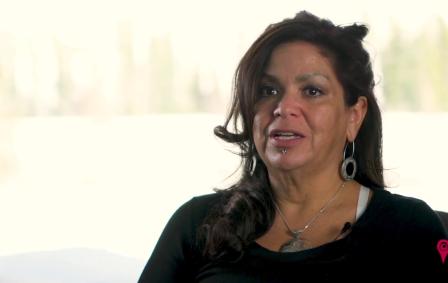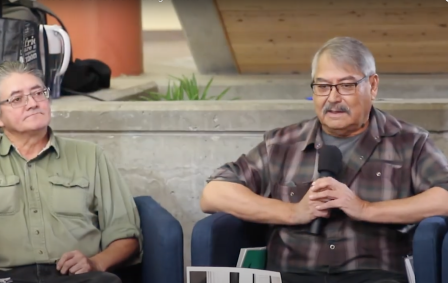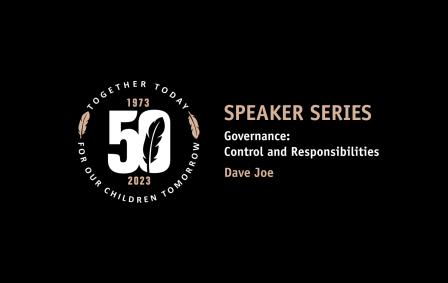Land Claims is our culture now
Land claims negotiation took hard work by many important leaders.
Marilyn Jensen, M.A., Yukon College Indigenous Governance Instructor, & Founder of the Dakhká Khwáan Dancers
Our leaders and Chiefs of those times, and a lot of them were elders, they completely stepped out of their own paradigm to do so. We’re literally talking about Chiefs coming out of the bush, going to Ottawa, buying a suit, and going into the Parliament Building. So how fearless can you be.
Math’ieya Alatini, former chief of Kluane First Nation
It was a kind of turbulent time in Yukon history and I grew up with that movement. Throughout high school, it was kind of indoctrinated that we had to forge our way in making Yukon what we wanted it to be. We had been recognized by Canada, we had this land claims agreement that was going to change our future and allow us to get out from under the Indian Act.
Pauline Frost, Vuntut Gwitchin First Nation citizen
When I went to the signing, I saw all the people there -Percy Henry, Paul Birckel, Charlie Abel, my uncle Harry - and how proud they were, how excited they were, about the signing of the agreement. It took me a few years to realize the significant of it… at the time I was just too young.
Marilyn Jensen, M.A., Yukon College Indigenous Governance Instructor, & Founder of the Dakhká Khwáan Dancers
The negotiations took tremendous strength and endurance. I’m from a generation where all our parents were completely consumed in the land claims. Today, we thank them because they made a place for us. We have some rights, we have a place to stand in this world because of their hard work.
Pauline Frost, Vuntut Gwitchin First Nation citizen
We’ve been taught as young people to share that what we learn, it’s part of our way and our cultures to keep out culture active and alive. And land claims is our culture, now. It’s a part of who we are.


